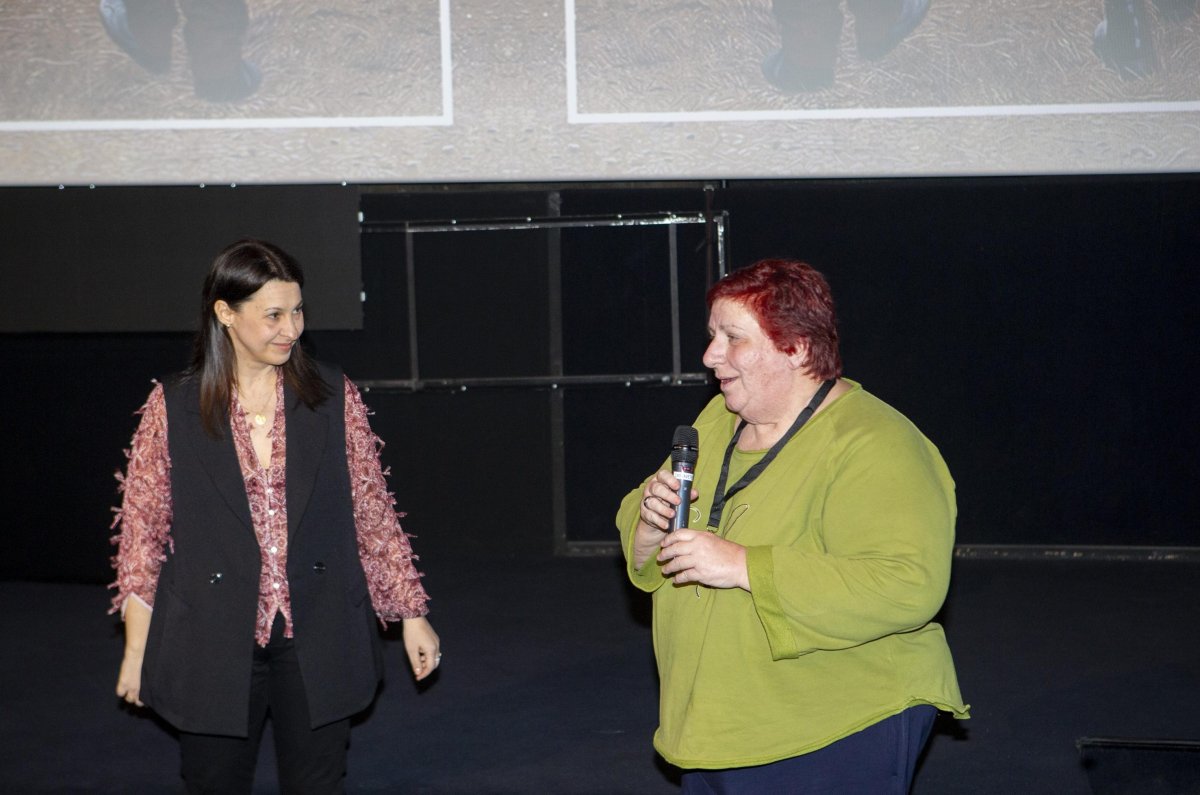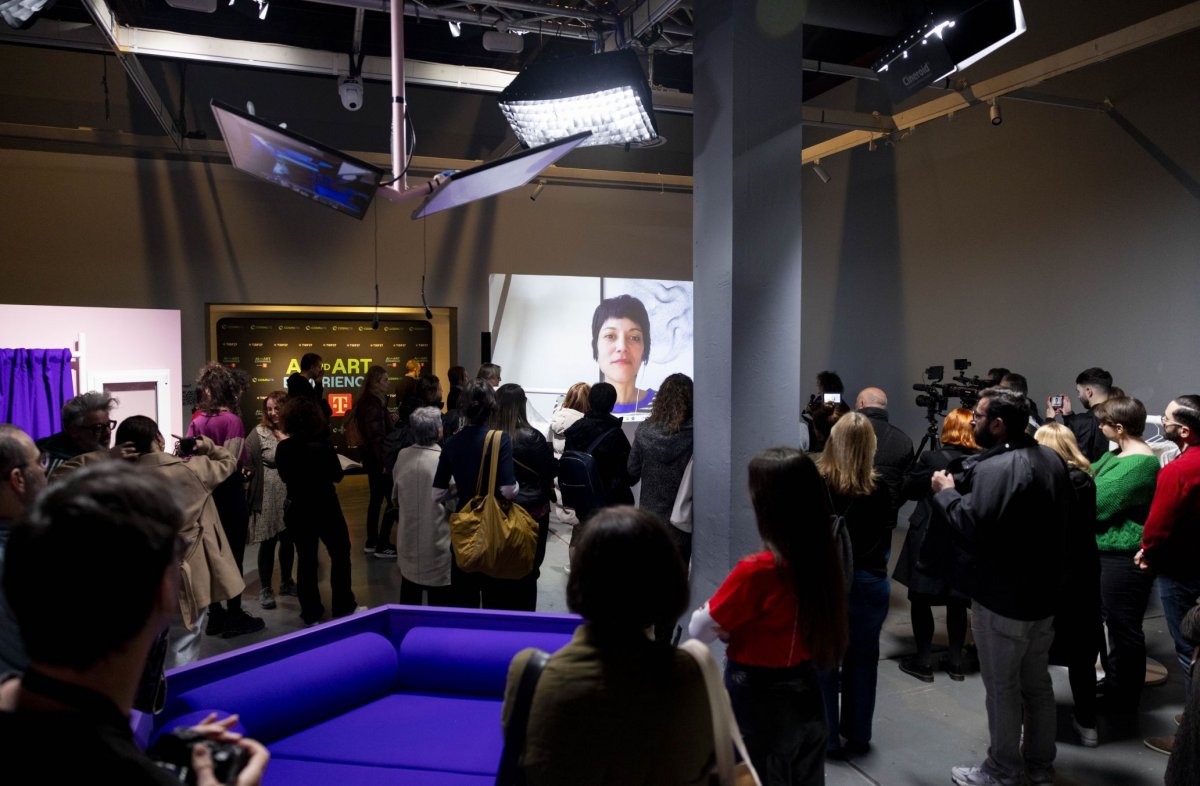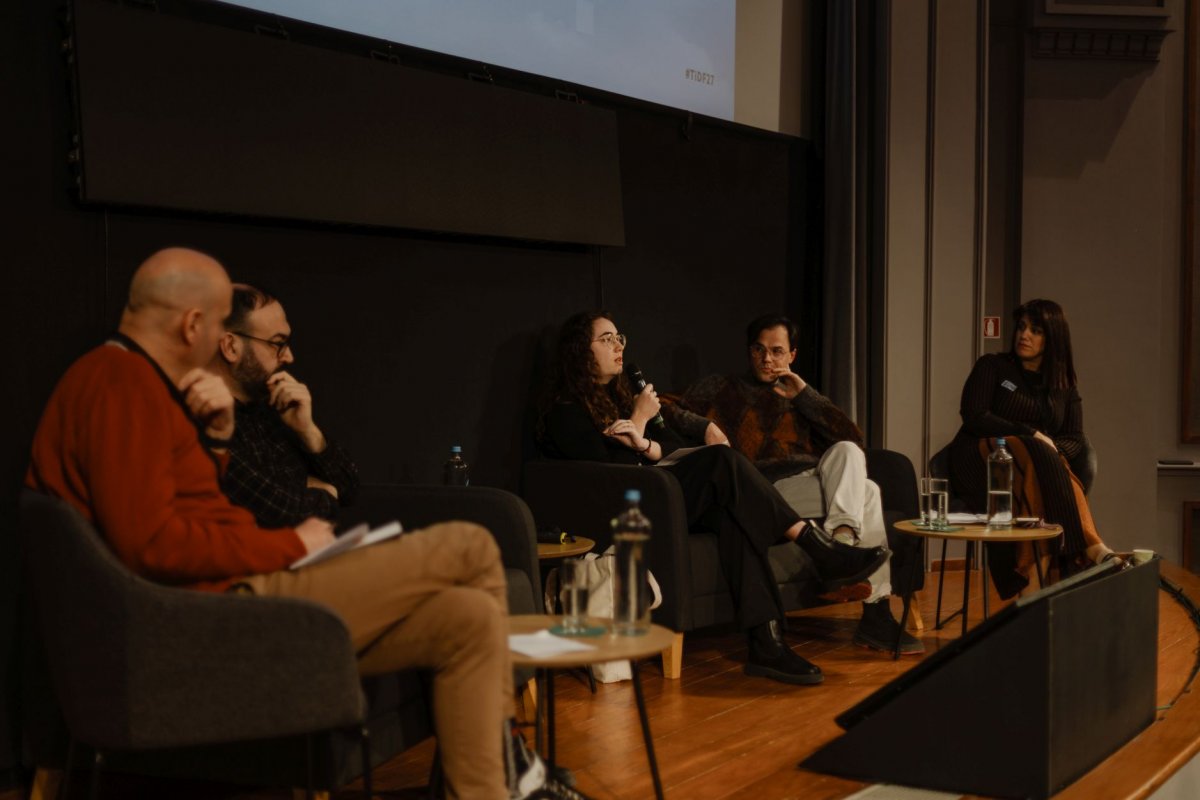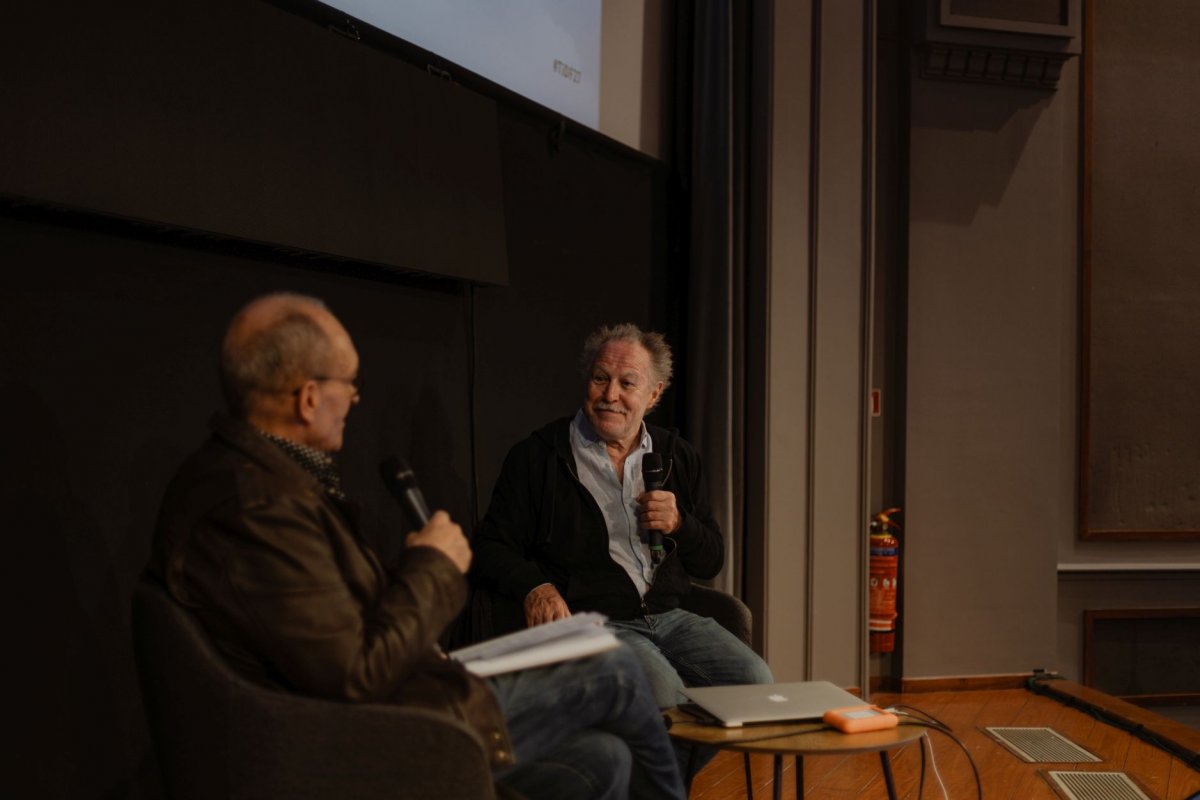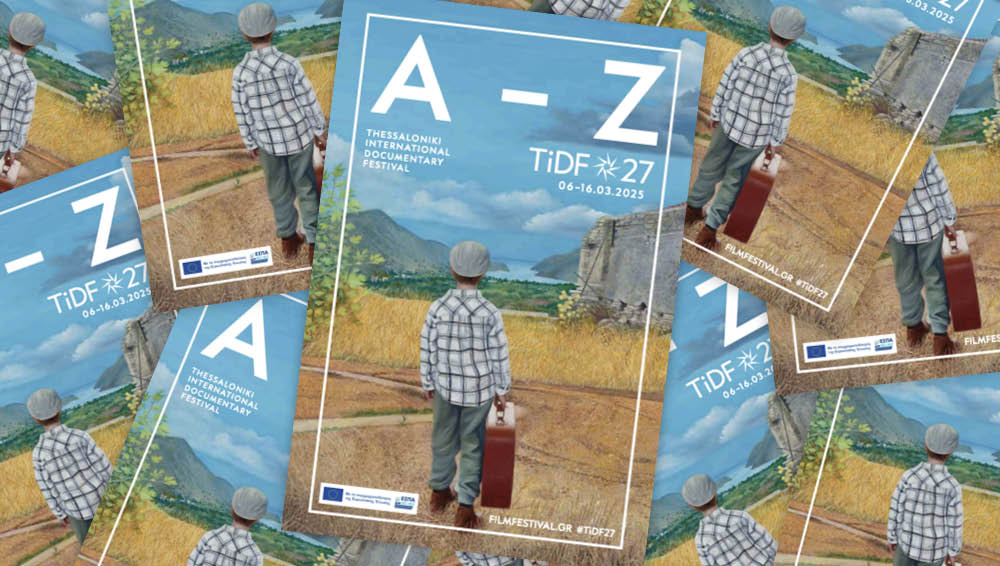Renowned director, screenwriter, and producer Elina Psykou, known for her critically acclaimed films The Eternal Return of Antonis Paraskevas and Son of Sofia, delivered a masterclass titled "Filming Adult Fairytales" on Saturday June 24th, in Agia Anna, guiding the audience through the symbols and the imagery of her personal directorial universe.
In the first part of her presentation, Elina Psykou delved into the notion of the initial idea in films, which may not necessarily be identifiable in the final script. For example, in the case of the film The Eternal Return of Antonis Paraskevas, the initial inspiration stemmed from a news story about the Brazilian journalist Wallace Souza, while in Son of Sofia, it originated from a woman from Albania who had separated from her child and had found a job as a dishwasher in a restaurant. A film's theme can evolve independently from its initial idea. "In Paraskevas, I came to the realization that the theme that concerned me was immortality and the imprint we leave behind, which led me to rewrite the script with this in mind. This had as a result scenes such as the protagonist watching the unveiling of a bust on TV, encountering a horse's carcass, or sitting in a square to engrave initials on a hero's monument. In Son of Sofia, I was preoccupied with the concept of identity (sexual, national, class, religious, political, linguistic, etc.), self-definition versus external determination through it, and our entrapment within it. This led to various scenes and dialogues, such as the first scene of Misha's baptism; since through baptism you are given both your name and your religious identity."
Elina Psykou went on to say that she chooses a three-act structure for her films, which serves as a guideline that she refers to whenever doubts and problems arise during the process. She also explained that often the characters in her films drive scenes that are not meant to advance the plot but rather to create a sense of intimacy with the audience, revealing unseen aspects of the characters’ inner world and their "biography." In general, according to Elina Psykou, a scene should serve one of the following three purposes: either to move the action forward, to serve as a vessel for the film's theme, or to reveal to the viewer the characters and their traits.
"I am one of those screenwriters where dialogues are integrated into the final form of the script and are not the product of improvisation, without being dogmatic. However, if the actors encounter any issues, we collectively adapt the dialogues to make them their own. If I consider a specific dialogic point to be extremely important, then I make sure to clarify to the actors why they should follow the original text to the letter." Immediately after, Elina Psykou made a special reference to the importance of places and locations in a film. "Just as the script-writing process continues once the actors come into play, the same happens when the film's locations are finalized. Many times, what we initially had in mind changes along the way. Sometimes, we draw inspiration for entire scenes as soon as we encounter a specific location. I experienced something similar in Paraskevas with the scene where the protagonist is water-biking in a half-empty swimming pool. Therefore, it is crucial for us to be open-minded and not to be egoistic about what we've written."
In response to a question from the audience about directing actors, Elina Psykou stated that approaches can differ from one filmmaker to another. "I will share with you my own experience from Son of Sofia, where the main cast consisted of three individuals from three different generations, with completely different backgrounds and characteristics. My approach includes a collective reading of the screenplay by all of the film's collaborators, guiding the actors through cinematic reference points, and rehearsals in the filming locations. However, in order to familiarize herself with the role, the film's lead actress, Valery Tscheplanowa, asked me to do two things that I could never have imagined and which initially unsettled and challenged me. Firstly, to meet my mother in order to understand why I ended up writing such a script, and secondly, to watch some videos from my childhood. Additionally, regarding Victor, the child starring in the film, I avoided giving him the script in advance because I was afraid he would end up parroting the lines. Instead, the script was impressed upon him through an assimilation process, without any prior systematic study. What I want to emphasize is that we must always be open-minded and maintain a balance between our own methodology and the actors' needs," she concluded.
At the end of her presentation, Elina Psykou addressed the topics of production and funding. "In my first film, funding came through in the final stage of production from the Greek Film Centre (GFC) and a distribution company, which facilitated its completion. Since the film was already in an advanced stage, my own creative vision was not affected at all. In my second film, following the successful journey of Paraskevas, it was easier to find funding both locally from GFC and ERT (Greek public broadcaster), as well as internationally, since the film was a co-production between Greece, France, and Bulgaria. Moreover, in the final phase of the whole process, we also received funding from Eurimages. As expected, the funding allowed me to realize my plans as a director and screenwriter. On the other hand, European co-production, besides the financial support, also entails certain obligations, such as working with collaborators you don't know or even shooting in other countries. The point where I realized that I was now moving along more strictly professional paths was when I had to give up my first choice for the female lead. This balance between artistic expression and professional considerations is an extremely arduous process. However, it is also absolutely necessary in order for filmmakers not to be treated as hobbyists but as true professionals who make a living from their art," Elina Psykou said, wrapping up the masterclass she delivered at Agia Anna.
Evia Film Project is the Festival’s third pillar of activities, adding its name to the International Thessaloniki Film Festival, held in November, and the Thessaloniki Documentary Festival, held in March. Its goal is to consolidate Northern Evia, a region severely hit by the 2021 calamitous wildfires, as an international hub of green cinema. Evia Film Project is actualized with the support of the Hellenic Ministry of Culture and Sports, within the framework of the Reconstruction Plan for Northern Evia, in collaboration with the Region of Central Greece, the Greek Film Centre, the Municipality of Istiea-Edipsos, the Municipality of Mantoudi-Limni-Agia Anna, and the Port Authority of Evia (OLNE SA). Thessaloniki Film Festival is teaming up with all institutions and bodies seated in Evia and the Department of Digital Arts and Cinema of the National and Kapodistrian University of Athens in Psachna.




